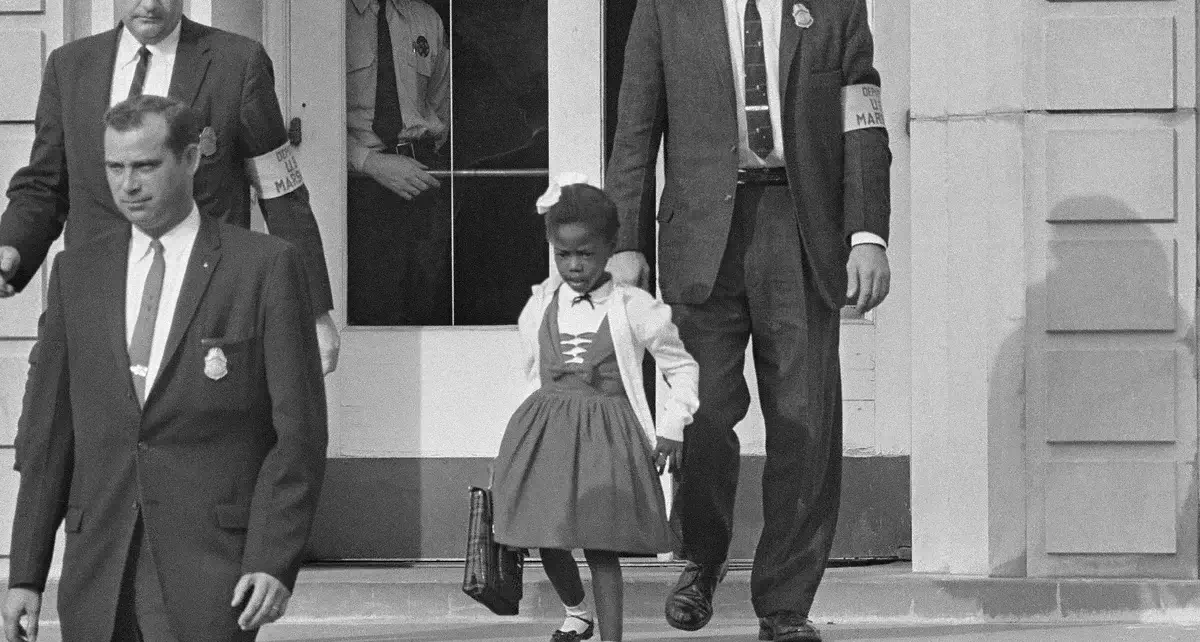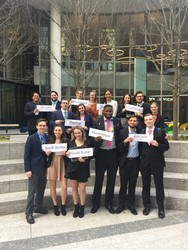Monmouth hosted Ruby Bridges, a civil rights activist who was one of the first African American children to attend a formerly white-only school in Louisiana during the New Orleans school desegregation crisis in the 1960s. Her presentation took place in the Pollak Theatre on Oct. 22, and it was titled “The Courage to Challenge Racial Injustice and Build Equity in Education.” The event was held by the Social Justice Academy in recognition of the 70th anniversary of “Brown v. Board of Education” and was moderated by Dr. Vernon Smith and Dr. Zaneta Rago-Craft.
Bridges was one of one-hundred-fifty black children to take a test determining whether they were smart enough to attend all-white schools, and she was one of the six girls who passed. This led her to being selected for enrollment at William Frantz Elementary School as the only African-American student.
Lisa Dinella, Ph.D., Professor of psychology and principal investigator in Gender Development at Monmouth, said, “Ruby Bridges is a civil rights pioneer. Her lifelong work towards racial equity and anti-racism is inspirational. I am ever-grateful for the opportunity to hear her tell her life story.”
At the time of the desegregation movement, Bridges was only six years old and had a very limited idea of why she was attending a new school for first grade or why she was the only student in her classroom. Throughout the presentation, she used elements of humor to describe her thought process during this time in her life, explaining how what protected her was “the innocence of a child.”
Bridges emphasized that she was extremely young and was given little to no context as to why she was switching schools or why people were suddenly paying more attention to her. On her first day at an all-white school, she was escorted by four U.S. Marshals sent by President Dwight Eisenhower, due to the crowd forming around the school.
Bridges explained, “In my mind, I kept thinking, this looks like Mardi Gras, but I remember taking the test and that everybody said I am so smart and no other kids could pass it. So then I thought; this is college, I am on my way to college and everybody came out because she is going from kindergarten/first grade straight to college.”
“My body is not my own,” Bridges remarked when discussing what it feels like to be the face of the desegregation movement. “I believe in my heart that I am just a vehicle and that what is happening to me, is happening through me. It wasn’t my choice. I was six.” Despite her young age, she was unafraid walking into an all-white school because she was unaware of the severity of the situation, so to her knowledge, there was no reason to have any fear.
Not only did Bridges discuss her childhood and her role in the civil rights movement, but she also mentioned her experiencing the loss of her oldest son due to violence towards African-Americans. The co-moderators also brought to attention how schools were attempting to ban her books, saying that her life story and writing were too divisive, to which Bridges said, “I celebrate and lift up the people that were involved and that helped me. So why would you be trying to ban my books?”
Ezinne Ndumnwere, information systems student, commented on the presentation. “[The event] was both moving and eye opening. Her story gave me a new perspective that I will carry with me forever. She discussed current racial issues and shared her childhood experiences. Looking through her eyes, I could only imagine the incredible bravery she showed as a young girl.”
Similarly, Gareth Lewis Jr., educational counseling student, reflected on the event by stating, “I can say that Ruby Bridges came, spoke and left and impact that every audience member felt. Hearing her speak her story in such a calm way is admirable. As a black man, I was able to listen, understand, and feel her pain and struggle. It was an honor to get the opportunity to hear her life story in person.”
Dinella concluded, “Events like this one send a message that Monmouth University is acting on its Diversity Mission Statement. It is crucial that we continue to support the good work of those leading the Social Justice Academy who brought Ruby Bridges here to campus. It is important that Monmouth University continues to offer its community access to civil rights leaders, so that together we can learn how to make our community a welcoming and just space.”



